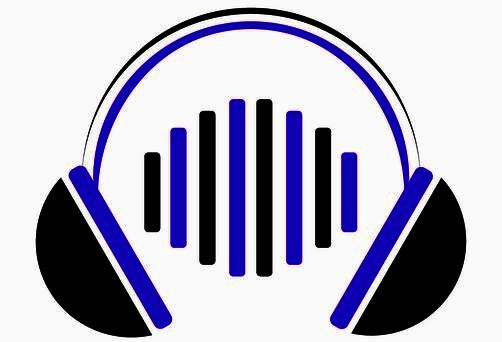CFP: EDM and its Discontents: The Contested Meaning of “Electronic Dance Music”. Edited by Anita Jóri
CFP: EDM and its Discontents: The Contested Meaning of “Electronic Dance Music”
Special edition of Dancecult: Journal of Electronic Dance Music Culture
Edited by Anita Jóri
The phrase electronic dance music and its acronym EDM have acquired contested meanings, particularly among scholars, journalists and actors involved in the field, such as musicians, fans and industry members. Researchers (e.g., Holmes 2020; Jóri 2021) and journalists (e.g., Glazer 2014) have attempted to trace the evolution of this nomenclature, but consensus regarding their definition remains elusive and debated among practitioners, journalists and academics. In research, both terms are generally used interchangeably as overarching terms encompassing diverse electronic musical styles and genres.
However, it has become evident that “electronic dance music” and “EDM” can carry distinct connotations. Specifically, EDM has become a contentious term within underground electronic music scenes and is often linked to mainstream, profit-oriented genres and musicians. This tendency began in the early 2000s, when electronic music and dance cultures underwent a process of mainstreamisation. This association is also reinforced and amplified by the music industry (especially in the US), not only by releasing music for an extended market but also by organising megafestivals, such as the Electric Daisy Carnival or Ultra Music Festival, and awards such as the American Music Award for Favorite Electronic Dance Music Artist (Jóri 2021). In an effort to differentiate between these meanings, Holt (2017), for example, introduced the category of “EDM pop”, which provides a useful distinction from EDM as a simple acronym for electronic dance music.
Over the last few decades, other alternative collective terms, such as “dance”, “dance music” (Thornton 1995; Bennett 2001), “rave music” (Reynolds 2013) and “techno” (Sicko 1999), can be found in the literature. These umbrella terms do not necessarily carry discontented associations among their users and are also favoured by journalists.
It is high time that researchers of this field properly question why scene members prefer to use alternative variations such as “dance music”, “dance” or “club music” instead of the genre name used in research. Thus, this issue of Dancecult will also provide an opportunity to discuss how scholarship can be the source of more widely accepted terminology.
To address these questions and examine the discursive and cultural (or regional) conflicts surrounding this terminology, this special issue of Dancecult encourages researchers to share their experiences, perspectives, suggestions and research findings on the controversy around electronic dance music and EDM. The issue also welcomes discussions on the debate involving “EDM pop” and, more broadly, the so-called “EDM pop industry”. It aims to foster open lines of inquiry and promote an inclusive dialogue on these and related topics.
The journal calls for content for two sections: “Feature” (6000–9000 words) and “From the Floor (FTF)” (750-2500 words). See more details below.
Suggested themes, but not limited to:
- The evolution of the terms “Electronic Dance Music” and “EDM”
- Different meanings of “Electronic Dance Music” and “EDM”
- Other umbrella terms, such as “dance”, “techno”, “rave music”
- Regional terminology variants
- “EDM pop” and its industry
- “EDM pop” events and audiences
- Trends and processes of genre (re-)naming
- Political and cultural consequences of certain terminologies
- Power relations of these terms
References
Bennett, Andy. 2001. Cultures of Popular Music. Berkshire: Open University Press.
Glazer, Joshua. 2014. “Etymology of EDM: The Complex Heritage of Electronic Dance Music”. Cuepoint. <https://medium.com/cuepoint/etymology-of-edm-the-complex-heritage-of-electronic-dance-music-d3e3aa873369#.c8fjdvgf1>, (accessed 2 June 2020).
Holmes, Thom. 2020. Electronic and Experimental Music. Technology, Music, and Culture. New York & London: Routledge.
Holt, Fabian. 2017. EDM Pop: A Soft Shell Formation in a New Festival Economy. In Weekend Societies: Electronic Dance Music Festivals and Event-Cultures, ed. Graham St. John, 25–43. London: Bloomsbury.
Jóri, Anita. 2021. The Meanings of Electronic Dance Music and EDM. In The Evolution of Electronic Dance Music, ed. Ewa Mazierska, Tony Rigg and Les Ginnon, 25–40. London: Bloomsbury.
Reynolds, Simon. 2013. Energy Flash. A Journey Through Rave Music and Dance Culture. London: Faber and Faber.
Sicko, Dan. 1999. Techno Rebels. The Renegades of Electronic Funk. Detroit: Wayne State University Press.
Thornton, Sarah. 1995. Club Cultures: Music, Media, and Subcultural Capital. Cambridge: Polity.
// SUBMISSIONS //
Feature Articles will be peer-reviewed and are 6000–9000 words in length (including endnotes, captions and bibliography). For policies, see: https://dj.dancecult.net/index.php/dancecult/section-policies
From the Floor (FTF) articles. The issue will include a themed From the Floor Section hosting imaginative submissions reviewed by the guest editor. As Dancecult policy stipulates: FTF submissions include field reports, mini-ethnographies, photo-essays and interviews. Pieces for this section should be between 750-2500 words in length. Rather than written in the style of an article with formal analysis and many citations, FTF pieces are more conversational or blog-like in style and may consist of experimental and creative reportage styles across the field of electronic dance music. They may include substantive multimedia components and for this special issue on space, creative visual and sonic explorations of the theme are encouraged. We welcome FTF submissions in accordance with the schedule below.
Articles must adhere to all style and formatting rules stipulated in the Dancecult Style Guide (DSG). Download it here: https://dancecult-research.net/Dancecult-Styleguide.pdf
Multimedia Submissions:
Dancecult encourages authors to complement their written work with audio and visual material. See the DSG for style and formatting requirements.
// DATES AND DEADLINES //
This special edition is proposed for publication in Dancecult in November 2025.
If interested, send a 250-word abstract (along with a one-hundred-word maximum author biography) to the editor by 15 May 2024. Please send abstracts for feature article and From the Floor submissions to Anita Jóri: anita[at]dancecult[dot]net
If your abstract is accepted, the deadline for submission of a full article draft to the guest editor for comments is 15 November 2024. If the full draft article is accepted, the deadline for online submission of your full article to Dancecult (for blind peer-review) is 1 February 2025.
Please send enquiries and expressions of interest to Anita Jóri: anita[at]dancecult[dot]net
Editor biography
Dr Anita Jóri is a postdoctoral research associate at Berlin University of the Arts (Universität der Künste Berlin, UdK). Jóri’s research and publications focus on the discursive and terminological aspects of electronic (dance) music culture. She is one of the curators of CTM Festival’s Discourse programme. She is also the author of the monograph The Discourse Community of Electronic Dance Music (transcript, 2022) and one of the editors of the books The New Age of Electronic Dance Music and Club Culture (Springer, 2020), Musik & Empowerment (Springer, 2020), Musik & Marken (Springer, 2022), Musik & Krisen (Springer, 2024) and Living at Night in Times of Pandemic: Night Studies and Club Culture in France and Germany (transcript, 2024).
anita[at]dancecult[dot]net





